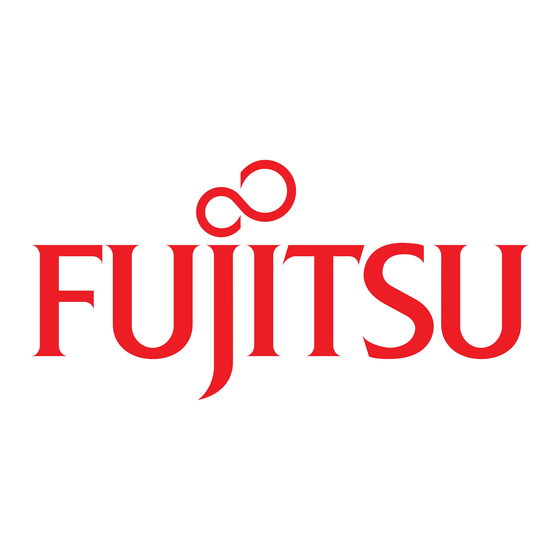operation. The easy-to-use front control panel is very intuitive for operators, and the interface
can be configured to streamline workflow, easing training requirements and reducing help
desk calls. Because it is significantly quieter than previous models and 35% smaller than the
Fujitsu award-winning fi-4990C, the fi-5900C is less physically demanding for operators.
The noise reduction and smaller footprint make it more practicable to locate the scanner
in more convenient locations closer to other operational units. Connectivity options are also
made much more flexible and less demanding as the Fujitsu fi-5900C supports USB 2.0 as
well as Ultra Wide SCSI.
Just as with cars, routine maintenance and preventative care help to maintain
performance and avoid costly unexpected failures. Scanners that can be attended to more
quickly and conveniently and with less reliance on a service professional give your
organization more control of scanning operations. Not only does the fi-5900C have a number
of user-replaceable parts, the areas that can be manipulated are color-coded, making them
easy to identify.
Regardless of the document scanner you purchase, regular professional checkups are
critical. Fujitsu offers service packages for every budget and business need through its
network of dedicated Fujitsu professionals who can offer onsite service nationwide in as little
as four hours. However, Fujitsu has incorporated many features to make unplanned service
calls less likely. For instance, the lamps used in the Fujitsu fi-5900C are rated for the life of
the scanner, and the cameras have been sealed to prevent damage from dust.
Scanning Technology Supports Compliance and Risk Mitigation
Consistently creating high quality images, being able to verify that all images were scanned
in a timely manner and protecting the original paper documents can be critical to the
compliance and risk mitigation initiatives faced by nearly every organization. If internal or
external auditors cannot find the image of the document they are looking for or the one they
find is illegible, your organization's overall operational practices will be called into question.
Yet many people overlook the role of document scanning hardware as part of corporate
governance and accountability.
VRS increases the readability of documents that may not scan well because of light type
or other factors. Combined with functions such as content-based auto-rotation of documents,
smoothing of background colors and de-skewing, this increased readability helps to ensure that
documents will be quickly available for review by eliminating the need for re-scans. Deadline-
driven operations, such as insurance claims, electronic medical records, police incident reports
or court filings, cannot afford the possibility of liability resulting from delays.
Fujitsu technology delivers additional features that contribute to ensuring flawless scans.
The three ultrasonic multi-feed sensors can be separately configured to optimize capabilities
for "problem" documents, such as excessively thin pages that otherwise enter the feeder
together and prevent scanning of every page. Fujitsu has also increased the overscan control
of the fi-5900C. By scanning a wider area outside of the prescribed paper path, the fi-5900C
decreases the likelihood that the corners of a document will be cut off. Because a bar code,
form number or other piece of vital information may be located in that corner, a defective
scan may render the document image invalid.
Organizations dealing with extremely sensitive or high-value documents often require
manual verification prior to committing a batch to a permanent electronic repository. Research
indicates that color documents are preferred by verifiers and enhance their accuracy, but
many organizations have business reasons for not wanting to rely solely on color images. The
significantly larger size of these files requires more storage space and more bandwidth to
transmit electronically. In addition, optical character recognition (OCR) software used for
forms processing or full-text indexing generally does not support color images.
Whitepaper

